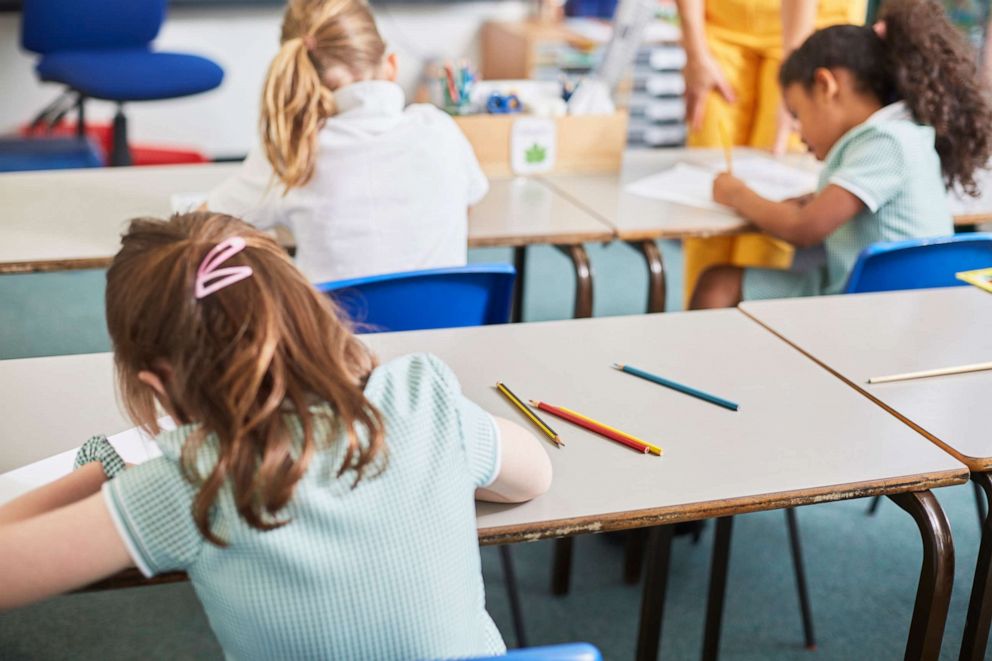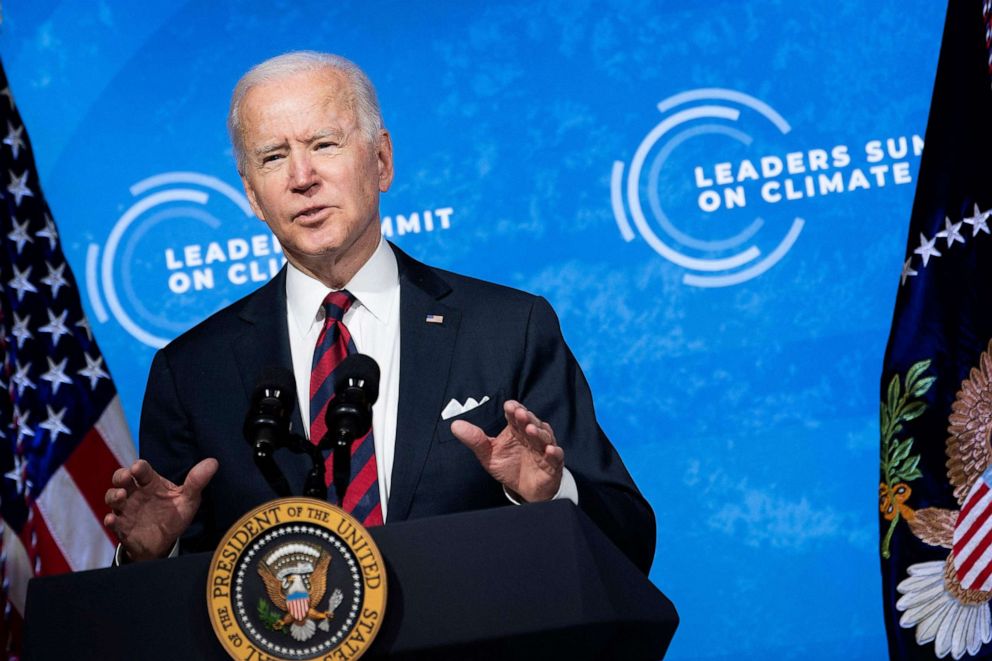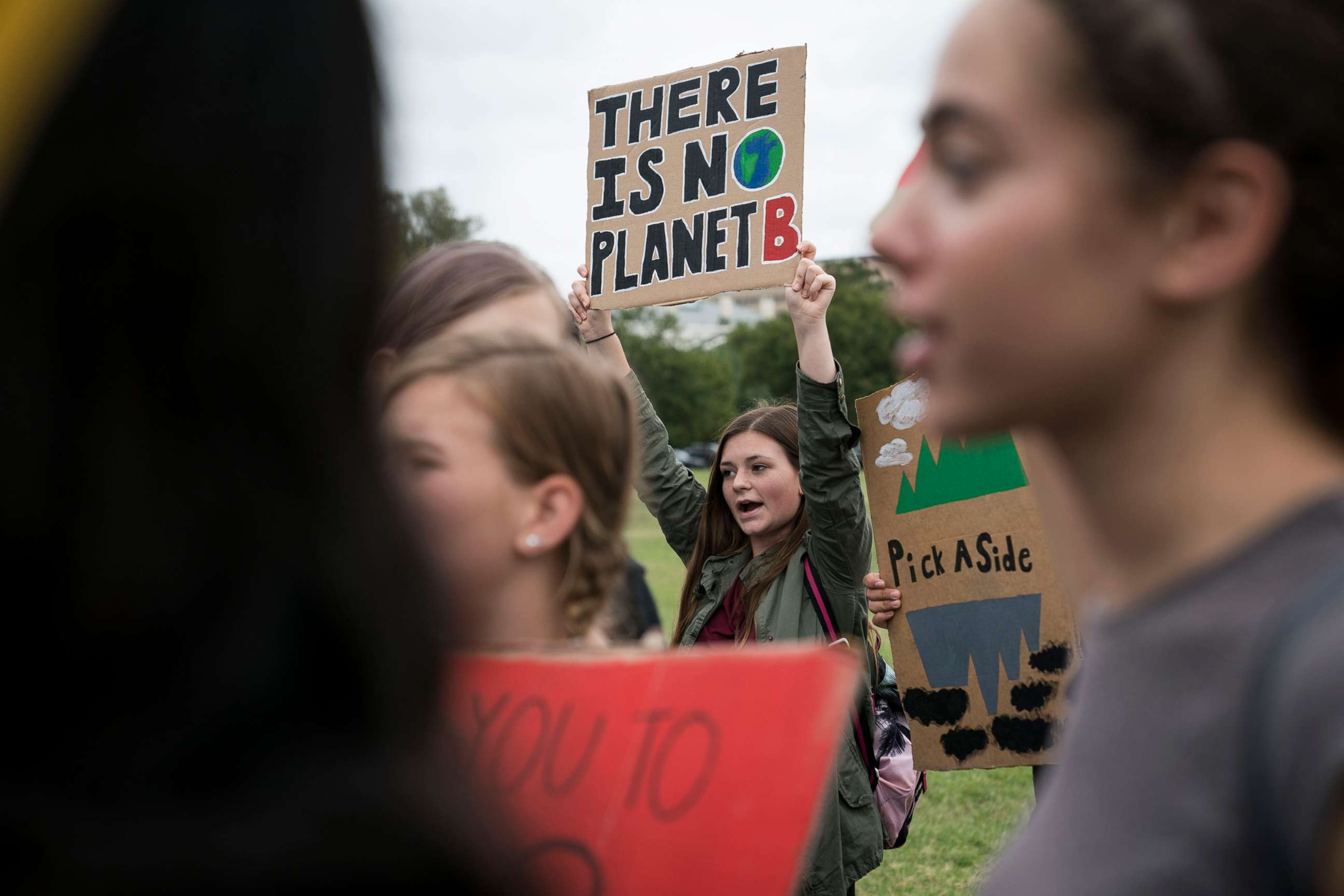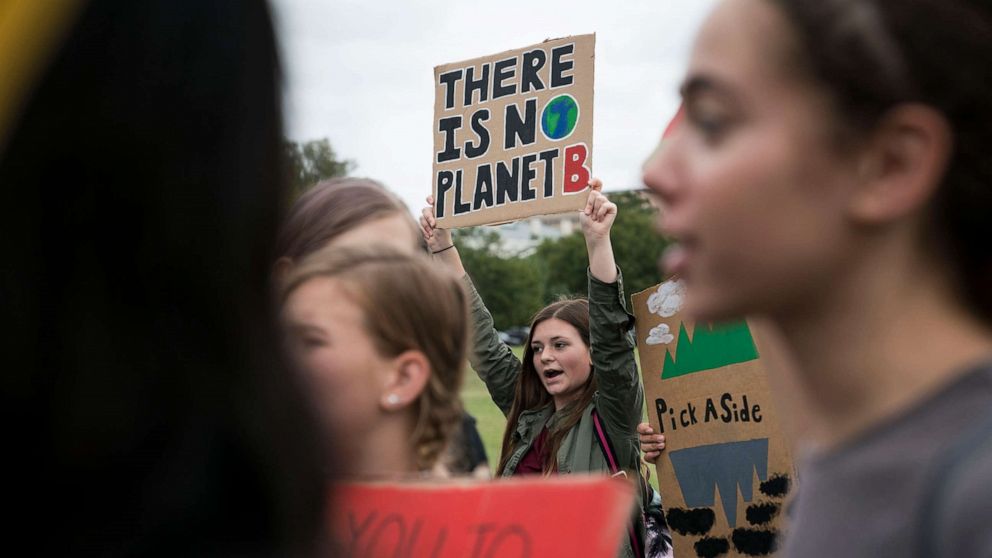Young people experiencing 'widespread' psychological distress over government handling of looming climate crisis, researchers say
Children and young people around the world are experiencing increasing anxiety over the fate of the planet -- specifically climate change and how lawmakers are handling the looming crisis, according to new research.
Scientists who surveyed 10,000 young people, ages 16 to 25, across 10 countries, found "widespread psychological distress" among them, and, for the first time, discovered that the anxiety was significantly related to perceived government inaction, according to a study published Tuesday in Lancet Planetary Health.
Nearly half of all young people surveyed, more than 45%, said their feelings about climate change negatively affect their daily life and functioning, according to the study.
Another 75% of those surveyed said they feel the future is frightening, while 64% said governments are not doing enough to avoid a climate catastrophe.

Of the young people surveyed, 58% said governments are betraying hem, while 61% said governments are not protecting them, the planet or future generations.
The study is the largest to ever research climate anxiety among children and young people and is the first to investigate how government action on climate change is related to widespread psychological distress among the youngest members of society, according to the authors.
"Climate change has significant implications for the health and futures of children and young people, yet they have little power to limit its harm, making them vulnerable to increased climate anxiety," according to the researchers.
The results of the study were not surprising and indicate a lack of trust toward the government as well as the perception of institutional betrayal, Lisa Van Susteren, a general and forensic psychiatrist and co-author of the study, told ABC News. The findings are also "as much a measure" of climate denial among adults as they are a measure of kids' anxiety, Van Susteren said.
"Kids are very media savvy. They're not living in a cave," Van Susteren said. "They have heard about what the future looks like. They've heard the warnings."
Scientists warned of the dire situation the planet faces in the annual Intergovernmental Panel on Climate Change (IPCC) report released last month.
"This report tells us that recent changes in the climate are widespread, rapid and intensifying, unprecedented in thousands of years," said IPCC Vice Chair Ko Barrett, senior climate adviser for the U.S. National Oceanic and Atmospheric Administration.

Young people have been at the forefront of the climate fight for some years -- with 18-year-old activist Greta Thunberg becoming a household name in 2018, and hundreds of thousands of young people around the world taking part in an organized global climate strike in 2019.
As an expert witness, Van Susteren performed psychological evaluations on the young people who were plaintiffs in Juliana V. United States, the 2015 federal lawsuit brought about by 21 youths who accused the government of failing to adequately combat climate change. She described it as "one of the most difficult experiences" in her career.
"You can clearly see that theirs depths of despair just are off the charts and are in part attributed to the sense that the future holds little promise," Van Susteren said.
The case was dismissed in January 2020, but lawyers representing the plaintiffs filed a motion in March to amend their complaint. The case is now pending in U.S. District Court, awaiting a ruling on that motion.

The researchers concluded that climate change and inadequate governmental response are associated with climate anxiety and distress in children and young people globally. Continued government inaction on climate change could lead to a public health crisis among the youth, the researchers warned.
Van Susteren described a "healing effect" that could take place if lawmakers and industry professionals were to do "the right thing" to significantly curb greenhouse gas emissions.
"They're not going to heal with words alone," she said. "They're going to heal because of actions that are taken."




